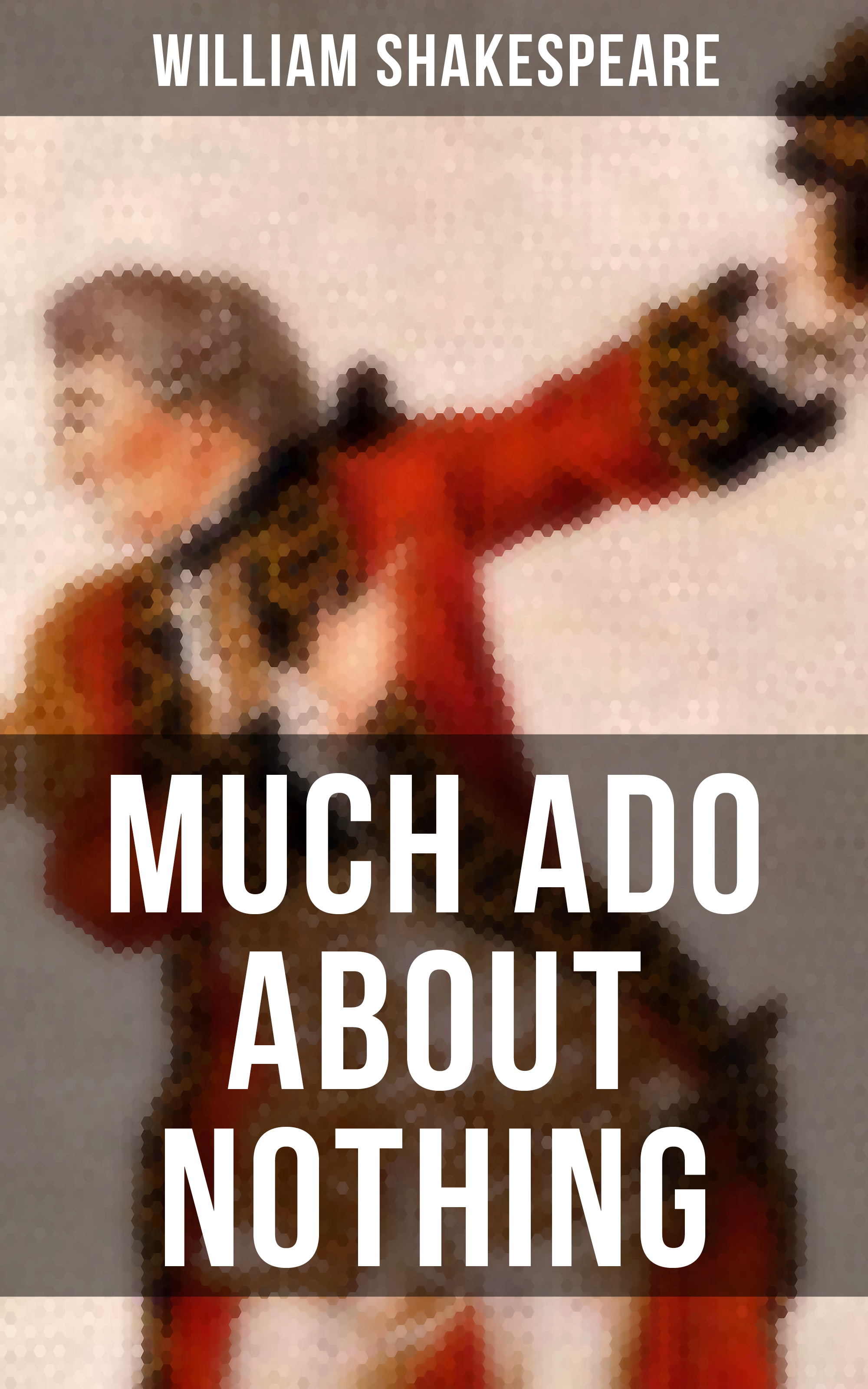In faith, my hand meant nothing to my sword.
LEONATO.
Tush, tush, man! never fleer and jest at me:
I speak not like a dotard nor a fool,
As, under privilege of age, to brag
What I have done being young, or what would do,
Were I not old. Know, Claudio, to thy head,
Thou hast so wrong’d mine innocent child and me
That I am forc’d to lay my reverence by,
And, with grey hairs and bruise of many days,
Do challenge thee to trial of a man.
I say thou hast belied mine innocent child:
Thy slander hath gone through and through her heart,
And she lied buried with her ancestors;
O! in a tomb where never scandal slept,
Save this of hers, fram’d by thy villany!
CLAUDIO.
My villany?
LEONATO.
Thine, Claudio; thine, I say.
DON PEDRO.
You say not right, old man,
LEONATO.
My lord, my lord,
I’ll prove it on his body, if he dare,
Despite his nice fence and his active practice,
His May of youth and bloom of lustihood.
CLAUDIO.
Away! I will not have to do with you.
LEONATO.
Canst thou so daff me? Thou hast kill’d my child;
If thou kill’st me, boy, thou shalt kill a man.
ANTONIO.
He shall kill two of us, and men indeed:
But that’s no matter; let him kill one first:
Win me and wear me; let him answer me.
Come, follow me, boy; come, sir boy, come, follow me.
Sir boy, I’ll whip you from your foining fence;
Nay, as I am a gentleman, I will.
LEONATO.
Brother,—
ANTONIO.
Content yourself. God knows I lov’d my niece;
And she is dead, slander’d to death by villains,
That dare as well answer a man indeed
As I dare take a serpent by the tongue.
Boys, apes, braggarts, Jacks, milksops!
LEONATO.
Brother Antony,—
ANTONIO.
Hold your content. What, man! I know them, yea,
And what they weigh, even to the utmost scruple,
Scambling, outfacing, fashion-monging boys,
That lie and cog and flout, deprave and slander,
Go antickly, show outward hideousness,
And speak off half a dozen dangerous words,
How they might hurt their enemies, if they durst;
And this is all!
LEONATO.
But, brother Antony,—
ANTONIO.
Come, ‘tis no matter:
Do not you meddle, let me deal in this.
DON PEDRO.
Gentlemen both, we will not wake your patience.
My heart is sorry for your daughter’s death;
But, on my honour, she was charg’d with nothing
But what was true and very full of proof.
LEONATO.
My lord, my lord—
DON PEDRO.
I will not hear you.
LEONATO.
No? Come, brother, away. I will be heard.—
ANTONIO.
And shall, or some of us will smart for it.
[Exeunt LEONATO and ANTONIO.]
[Enter BENEDICK.]
DON PEDRO.
See, see; here comes the man we went to seek.
CLAUDIO.
Now, signior, what news?
BENEDICK.
Good day, my lord.
DON PEDRO.
Welcome, signior: you are almost come to part almost a fray.
CLAUDIO. We had like to have had our two noses snapped off with two old men without teeth.
DON PEDRO. Leonato and his brother. What think’st thou? Had we fought, I doubt we should have been too young for them.
BENEDICK. In a false quarrel there is no true valour. I came to seek you both.
CLAUDIO. We have been up and down to seek thee; for we are high-proof melancholy, and would fain have it beaten away. Wilt thou use thy wit?
BENEDICK.
It is in my scabbard; shall I draw it?
DON PEDRO.
Dost thou wear thy wit by thy side?
CLAUDIO. Never any did so, though very many have been beside their wit. I will bid thee draw, as we do the minstrels; draw, to pleasure us.
DON PEDRO.
As I am an honest man, he looks pale. Art thou sick, or angry?
CLAUDIO. What, courage, man! What though care killed a cat, thou hast mettle enough in thee to kill care.
BENEDICK. Sir, I shall meet your wit in the career, an you charge it against me. I pray you choose another subject.
CLAUDIO.
Nay then, give him another staff: this last was broke cross.
DON PEDRO. By this light, he changes more and more: I think he be angry indeed.
CLAUDIO.
If he be, he knows how to turn his girdle.
BENEDICK.
Shall I speak a word in your ear?
CLAUDIO.
God bless me from a challenge!
BENEDICK. [Aside to CLAUDIO.] You are a villain, I jest not: I will make it good how you dare, with what you dare, and when you dare. Do me right, or I will protest your cowardice. You have killed a sweet lady, and her death shall fall heavy on you. Let me hear from you.
CLAUDIO.
Well I will meet you, so I may have good cheer.
DON PEDRO.
What, a feast, a feast?
CLAUDIO.
I’ faith, I thank him; he hath bid me to a calf’s-head and a capon,
the which if I do not carve most curiously, say my knife’s naught.
Shall I not find a woodcock too?
BENEDICK.
Sir, your wit ambles well; it goes easily.
DON PEDRO.
I’ll tell thee how Beatrice praised thy wit the other day. I said,
thou hadst a fine wit. ‘True,’
